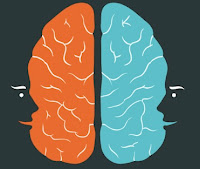 In order to become fluent in a particular language, one must master 50,000 words. For bilinguals and trilingual, this learning process is repeated two-three times during their life. To understand how the ‘mind of the polyglot’ functions, scientists are researching the many ways language affects the behavior and structure of the brain.
In order to become fluent in a particular language, one must master 50,000 words. For bilinguals and trilingual, this learning process is repeated two-three times during their life. To understand how the ‘mind of the polyglot’ functions, scientists are researching the many ways language affects the behavior and structure of the brain.
A baby may not be able to speak a language fluently, however, they are able to identify certain sounds and combinations of language. Thus, they develop a babble of these combinations of sounds, which later narrows down to the native language in which the parents reply to them. When a child develops two languages at the same time, they are most likely to encounter situations such as the dog-chien dilemma, excelling in the Stroop test and code switching. This behavior may be seen in the brain. Some studies suggest that bilingual brains may have a thickening of the cortex (left inferior parietal), while others have found an increasing amount of white matter in the frontal regions of the brain, compared to monolingual brains.
Bilingualism also comes with numerous advantages and disadvantages. Besides being able to communicate in two languages, bilingualism also has other advantages regarding the brain’s health. Studies have supported that bilinguals have dementia 4.1 years later than monolinguals, and Alzheimer’s 5.1 years later. Another study suggests that monolinguals are metabolically economical when completing cognitive missions. In particular, a common disadvantage of bilingualism is that many children struggle to increase their vocabulary in both languages to the same extent as monolinguals. However, this is considered a short-term disadvantage as most children catch up on this problem later in life. Even though multilingualism may not be the only way to stay cognitively healthy, it remains an area of scientific interest and research in order to find out why and how the brain has the capability and capacity to learn more than just one language.
Works Cited
Kluger, Jeffrey. "Understanding How the Brain Speaks Two Languages." Time Health. Time, 23 Apr. 2013. Web. 23 Sept. 2016.
No comments:
Post a Comment